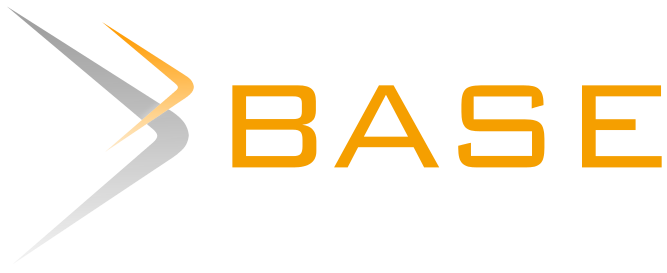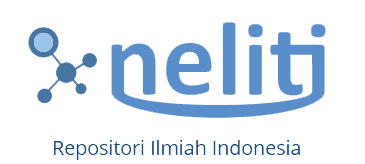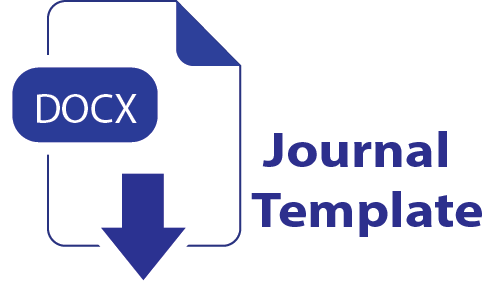Pengaruh Kualitas Layanan Pelaku Wisata Terhadap Tingkat Kepuasan Wisatawan Mancanegara Di Taman Nasional Tanjung Puting, Kabupaten Kotawaringin Barat
DOI:
https://doi.org/10.35908/jeg.v6i1.1166Abstract
Indonesian tourism in 2019 provided the second largest contribution after CPO in providing foreign exchange. With this development, currently various regions in Indonesia are developing tourism, one of which is in West Kotawangin Regency with the Tanjung Puting National Plant (TNTP) destination. To develop regional tourism, extra services are needed by tourism actors such as guides, Klotok, food and so on in order to provide satisfaction for both foreign tourists (tourists) and domestic tourists (Wisnus). Therefore, this study aims to 1) determine the effect of the quality of tour kelotok services, on the satisfaction level of foreign tourists visiting Tanjung Puting National Park. 2) Knowing the effect of the quality of tour guide services on the level of satisfaction of foreign tourists visiting Tanjung Puting National Park. 3) Knowing the effect of the quality of food and baverage services on the level of satisfaction of foreign tourists visiting the Tanjung Put National Park. and 4) Knowing the effect of hotel service quality on the level of satisfaction of foreign tourists visiting Tanjung Puting National Park. The research method used. in this research is quantitative with data analysis using Multiple Linear Regression Analysis. The results of the study show that the service quality of tourist services has an effect on the level of satisfaction of foreign tourists, both tour group services, guide services, food and baverage services and hotel services as a whole (simultaneously) have an effect of 60.1% on the level satisfaction of foreign tourists.
References
Babakus, E. dan Boller (1992),’An Empirical Assesment of The SERVQUAL Scale’, Journal of Business Research, Vol. 24: 253-268. 2. Gilbert, R. (1998). “Measuring internal customer satisfaction.â€Managing ServiceQuality, Vol.10, No. 3, pp. 178–186.
Handriana, T. (1998), ‘Analisis Perbedaan Harapan Kualitas Jasa Pada Lembaga Pendidikan Tinggi di Surabaya’, Tesis S2
Husein, Umar. 2003, Studi Kelayakan Bisnis Jasa, Jakarta. Gramedia Pustaka Utama
Jones, C. (1996). “Customer satisfaction assessment for “ internal †suppliers.†Managing Service Quality, Vol. 6, No. 1, pp. 45–48. 6.
Kotler, P&Amstrong. 2006. Manajemen Pemasaran. Jakarta .PT. Indeks
Kristiyono, demitrius (2005) “Faktor-Faktor yang Berpengaruh Terhadap Kepuasan Serta Konsekuensinya Terhadap Perceived Image dan Loyalitas Wisatawan Domestik yang Berkunjung ke Obyek Wisata Alam Di Jawa Timur†disertasi – universitas 17 agustus 1945 Surabaya.
Parasuraman, Zeithaml, A.V. dan Berry L.L. (1985), ‘A Conceptual model of Service Quality’, Journal of Retailing, Vol. 67: 420-450.
Parasuraman, Zeithaml, A.V. dan Berry L.L. (1994), ‘Reassesment of Expectations as a Comparison Standar in Measuring Service Quality: Implications for Further Research’, Journal of Marketing, Vol. 9:111-124.
Parasuraman, A., Zeithaml, V., and Berry, L. (1985).“A Conceptual Model of Service Quality and Its Implications for Future Research.â€Journal ofMarketing, Vol. 49, No. 4, pp. 41-50.
Parasuraman, A., Zeithaml, V., and Berry, L. (1988), “SERVQUAL: A Multiple-Item Scale for Measuring Consumer Perception of Service Quality.†Journalof Retailing. Vol. 64, No.1, pp. 12-40.
Reynoso, J., and Moores, B. (1995).“Towards the measurement of internal service quality.â€International Journal of Service Industry Management, Vol. 6, No.3, pp. 64– 83.
Schneider, Benjamin., and White, Susan S (2004)†Service Quality – Research Perspektiveâ€, SAGE Publication, international and Professional Publisher, Thousand Oaks. London. New Delhi
Setiawan, C. 2013. Analisis Pengaruh Dimensi Kualitas Pelayanan Terhadap Tingkat Kepuasan Pengunjung pada Wisata Bahari Lamongan. Skripsi. Fakultas Ekonomi dan Bisnis Universitas Brawijaya Malang.
Spillane, .J.J. 2002. EkonomiPariwisata Sejarah dan Prosepeknya. Yogyakarta: Kanisius.
Sugiyono. 2014. Metode Penelitian Bisnis. Bandung. Penerbit CV. Alfabeta.
Taruna, M.S. 2013. Analisis Peningkatan Minat Wisata Melalui Peningkatan Pelayanan pada Obyek Wisata Pantai Widuri Kabupaten Pemalang. Skripsi. Fakultas Ekonomi dan Bisnis Universitas Pekalongan.
Utomo, A.B & Kustiyah, E. 2013. Pengaruh Dimensi Kualitas Pelayanan terhadap Kepuasan Pengunjung pada tempat Pariwisata di Surakarta (study kasus pada taman satwa Taru Jurug), Jurnal Paradigma. Volume 11. No 02. Agustus 2013- januari 2014.
Wirajaya, Y. 2013. Analisis kepuasan wisatawan manca negara terhadap kualitas pelayanan pariwisata, jurnal manajemen – akuntansi. Volume 2, nomor 3.
Sugianti, 2016. Strategi Pengembangan Kawasan Wisata Pasar Terapung Berbasis Kearifan Lokal di Kota Banjarmasin. Tata Kelola Seni: Vol. 2 No. 2 Desember 2016
Supriadi, 2013. Pola Pembinaan Dan Pendampingan Kelompok Jasa Pemandu Wisata (Local Guide, Lg) Di Daya Tarik Wisata Gunung Bromo(Gb). Seminar Nasional Ekowisata. ISBN: 978-602-19230-5-4 : 12 November 2013: UWG
Alhamdi, R. 2018. Pengaruh Kompetensi Dan Motivasi Terhadap Kinerja Karyawan Dengan Kepuasan Kerja Sebagai Variabel Moderasi Di Patra Semarang Convention Hotel. Jurnal Pariwisata Pesona. Volume 03 No 1, Juni 2018: hal. 57-68
Downloads
Published
How to Cite
Issue
Section
License
Authors who publish with this journal agree to the following terms:
- Authors retain copyright and grant the journal right of first publication with the work simultaneously licensed under a Creative Commons Attribution License   that allows others to share the work with an acknowledgement of the work's authorship and initial publication in this journal.
- Authors are able to enter into separate, additional contractual arrangements for the non-exclusive distribution of the journal's published version of the work (e.g., post it to an institutional repository or publish it in a book), with an acknowledgement of its initial publication in this journal.
- Authors are permitted and encouraged to post their work online (e.g., in institutional repositories or on their website) prior to and during the submission process, as it can lead to productive exchanges, as well as earlier and greater citation of published work










